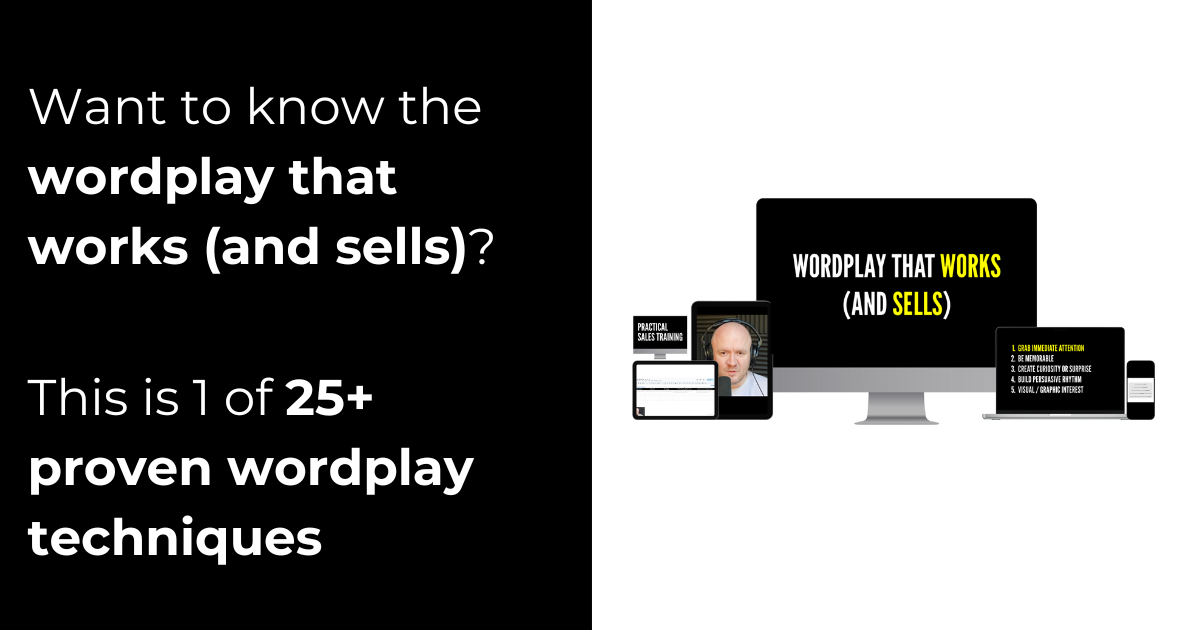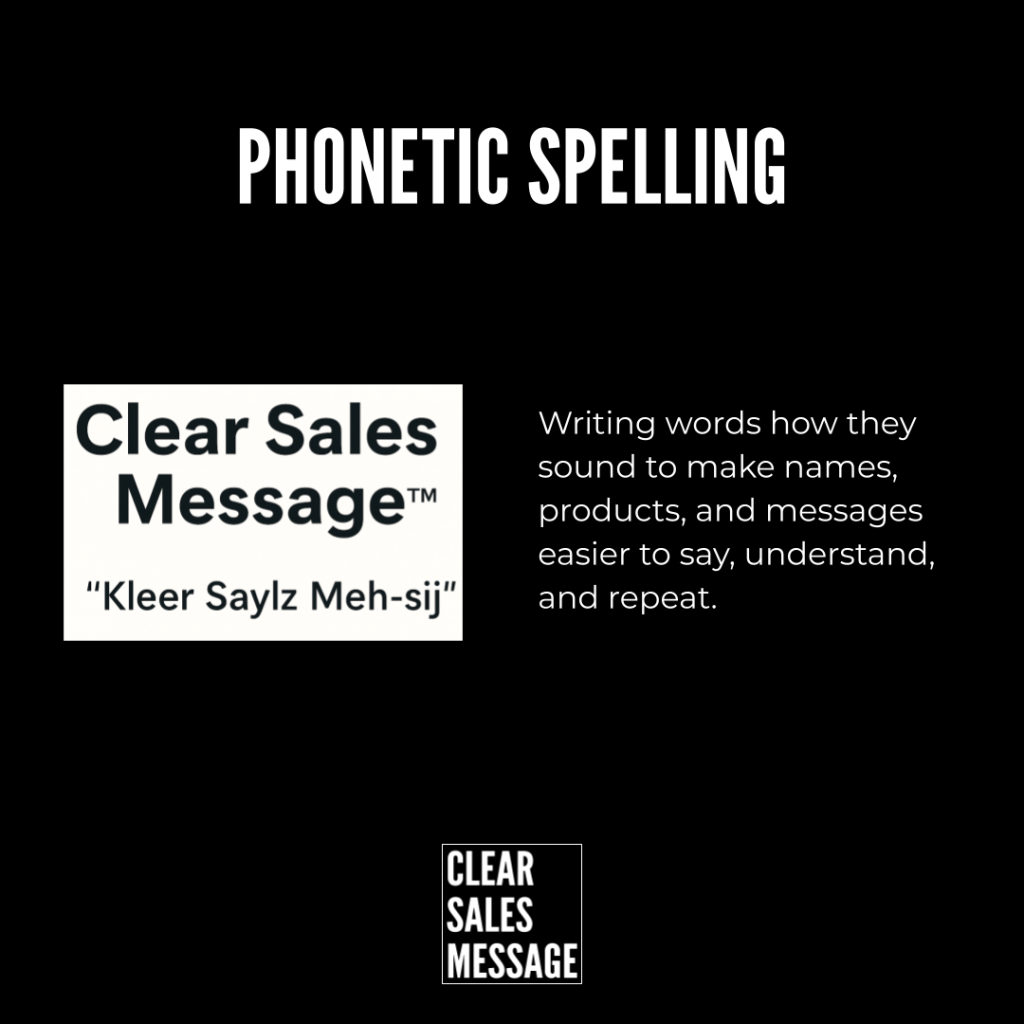Practical Sales Training™ > Wordplay > Phonetic Spelling
What is phonetic spelling?
Phonetic spelling is a way of writing words based on how they sound, rather than how they’re traditionally spelled. In sales, it’s a powerful tool to make your message easier to understand, especially when you’re dealing with names, product terms, or anything that could be misheard, misread, or mispronounced.
It’s not about being perfect—it’s about being clear.
Instead of “Siobhan,” you say “Shi-vawn.”
Instead of “Joaquin,” you say “Wah-keen.”
When your communication is easy to say and repeat, it becomes easier to remember—and easier to sell.
How does phonetic spelling work in sales?
It works by simplifying how people hear, say, and share what you’re selling. You break words into syllables and spell them how they sound. That way, your audience knows exactly what you mean, especially in:
-
Sales calls
-
Pitches
-
Presentations
-
Voice notes
-
Product names
-
Follow-ups
Example:
If you’re introducing a brand called “Xogenix,” you might say:
“It’s pronounced Zoh-jen-iks – like ‘energy’ with a twist.”
Phonetic spelling makes new words, technical terms, and even your own name easier to absorb and repeat. That’s a conversion advantage.
How can you use phonetic spelling in your sales communication?
1. Say your name clearly
If your name is often mispronounced, include a phonetic version in your email signature, Zoom name, or pitch decks.
Example:
“Hi, I’m Aoife (Ee-fa), your point of contact at Clear Sales Message™.”
A clear name builds instant rapport.
2. Introduce new or unusual product names
When launching something with a non-obvious pronunciation, include a phonetic guide right away.
Example:
“Our software is called Quorion (Core-ee-on)—think ‘core’ like the centre of your business.”
3. Improve phone and video clarity
On calls or Zoom, spell tricky words or email addresses using the NATO phonetic alphabet:
“That’s B as in Bravo, T as in Tango…”
It saves time and avoids follow-up confusion.
4. Build trust through accessibility
Making your message easy to say and repeat shows empathy. It reduces friction in the sales process and removes silent objections like “I’m not sure how to say that” or “What did they say again?”
5. Make your message memorable
The easier something is to say, the easier it is to share. If people can’t pronounce your brand, they probably won’t recommend it.
Final thought:
Clarity closes deals. Phonetic spelling isn’t just for language learners—it’s for sales professionals who want their message to land first time, every time.
See also



